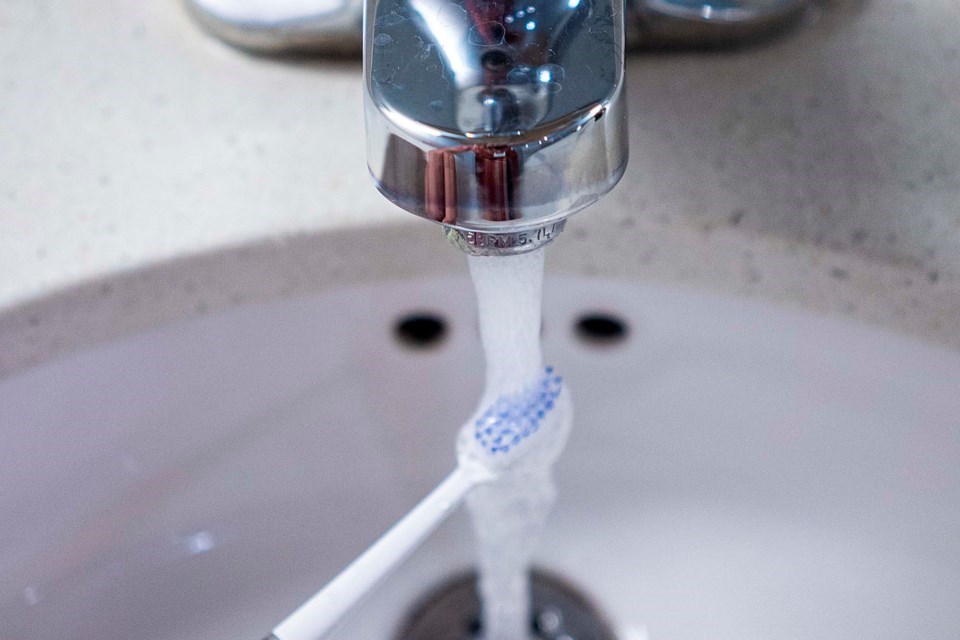EPCOR, the Edmonton region and St. Albert's water supplier, has several projects either underway or planned for the near future to prevent equipment failures like the one that led to a ban on non-essential water use being imposed for nearly a week.
The projects, company directors told Edmonton city council's Utility Committee on March 4, include building a new standalone electrical building at the E.L. Smith Water Treatment Plant in the southwest Edmonton neighbourhood of Cameron Heights, as well as building an additional pumphouse at the same plant.
Edmonton's committee heard both projects will improve the treatment plant's overall resiliency. It was called into question after EPCOR imposed a ban on non-essential water use at the end of January because of an electrical failure that led the E.L. Smith Plant — one of just two water distribution plants in the region — to shut down. The plant failure severely limited the amount of tap water that could be distributed to the 90 communities that receive water from EPCOR either directly or through regional water commissions.
When the ban was lifted on Feb. 2, EPCOR director of water treatment plants Vicki Campbell told media the electrical failure was a result of water entering a vault that houses “high voltage electrical cables.”
“These cables feed 4,000 horsepower pumps, which supply water into the distribution system,” she said. “This contact resulted in the failure of major electrical components at the E.L. Smith Water Treatment Plant, but the production side of the plant was still operational, so clean safe water was still being produced, we just couldn't get it into the system.”
On March 4, Craig Bonneville, EPCOR's director of engineering and technical services, said the projects the company has underway or that are set to start in the next year or two “will eliminate many of the risks that this event exposed.”
“The new electrical equipment will be housed in a new building and will be physically separated from water storage chambers, eliminating the risk of water ingress,” Bonneville said. “The electrical equipment for this project was ordered in the fall of 2023 and the new building and equipment is expected to be installed and in service in the spring of 2025.”
Bonneville also said the additional pumphouse EPCOR plans to build at the E.L. Smith plant “will be completely independent from the existing pumphouse in that location,” so if one pumphouse fails, like it did in January, a second facility would prevent water distribution disruptions.
“Both water treatment plants will continue to be assessed on their ability to continue operating through a variety of types of events, be that equipment failures, impact to river water quality, power disruptions, flooding, many of these scenarios ... will be refined and built upon [moving forward],” he said.
Car wash owners question fairness
Following the presentation made to the Utility Committee by EPCOR executives on March 4, several car wash owners and executives spoke about how the ban on non-essential water use affected their businesses, and said the company's communication during the ban was lacklustre.
“Information provided was either very conflicting or non existent,” said Terrina Van Woerkom, the co-owner of Big City Car Wash in Morinville.
“In our case, we were paid a visit by the town utilities manager and then by the bylaw officers. We were told that we must shut down both locations immediately.”
Van Woerkom also challenged EPCOR's determination that car washes are unessential, meaning they were required to cease operations during the water ban, unlike determined essential services like hospitals, but also restaurants.
“We live in a rural area and driving the township roads covers the vehicles in mud causing safety issues with sensors as well as sight,” she said, adding her business routinely serves school buses, ambulances, and police vehicles.
“Not only was their loss revenue, but staff wages, source deductions, lease or mortgage payments, as well as many other costs that are incurred while operating a business.”
Natasha Toffoli, the chief operating officer of Bubbles Car Wash and Detail Centres, and Darren Hughes, the vice-president of Hughes Car Wash, both told the Utility Committee and EPCOR executives they thought future water bans shouldn't “unfairly burden” the car wash industry, and there should be a collective water ban or limit across all industry instead.
“A more equitable approach to this emergency measure would have been a universal directive, a collective reduction across across all industries,” Toffoli said. “A few examples would be urging manufacturers to scale down production, encouraging restaurants to utilize disposable dinnerware for a few days, or hotels to minimize laundry.”
“A collective [reduction] would have achieved the necessary conservation without unfairly burdening just car washes and [breweries].”
“I believe with some input from industry and creative thinking we could have a plan in place for the future events that would alleviate the need to close certain businesses but share the burden across all businesses,” added Hughes.
EPCOR reported the water ban led to a roughly 10 per cent reduction in expected residential and commercial or industrial water usage, which equalled about 100 million litres of water over four days.




